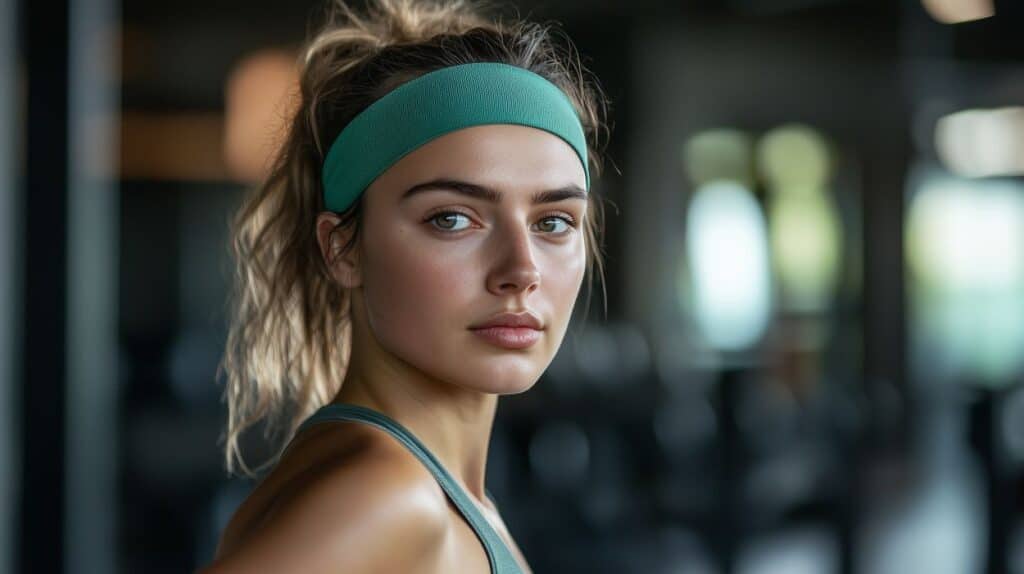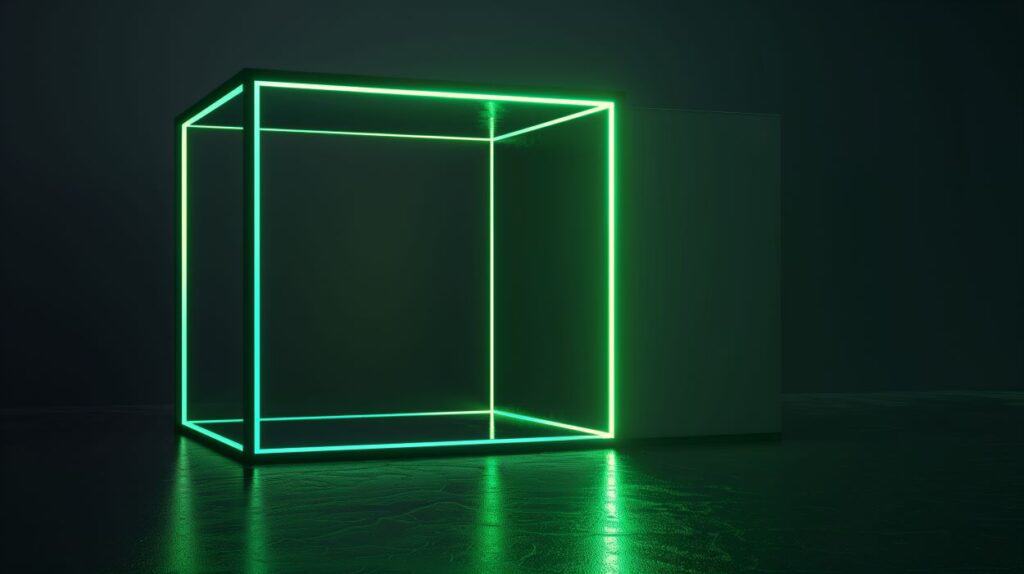Effective hydration strategies for those with keratoconus during workouts are essential for maintaining corneal health and visual stability.
Proper hydration isn’t just about overall health for those of us with keratoconus—it plays a significant role in managing our condition and ensuring comfort during physical activities.
Understanding Keratoconus and Hydration

Keratoconus is a progressive eye condition where the cornea thins and bulges into a cone-like shape, causing distorted vision.
Recent research has shown that hydration levels can significantly impact corneal biomechanics—the way the cornea responds to forces applied to it—which is particularly important for those with keratoconus.
A study by Vera et al. (2022) published in the Indian Journal of Ophthalmology demonstrated that even small changes in hydration status can alter corneal biomechanical properties.
The researchers found that drinking 500ml of water was sufficient to induce changes in corneal deformation amplitude, highest concavity time, and peak distance.
These changes were observed using the CorVis ST system, a non-contact tonometer that provides detailed measurements of corneal biomechanics.
Pre-Exercise Hydration Strategies
For those of us with keratoconus, establishing proper hydration before workouts is key. Here are some strategies:
- Drink 16-24 fl oz (about 500-700 ml) of water 2-3 hours before your workout.
- Consider fluids containing sodium, which can help our body retain water more effectively.
- Consult with your ophthalmologist about tailored hydration strategies for your specific needs.
It’s important to note that the study by Vera et al. found that drinking water increased intraocular pressure (IOP) for up to 45 minutes after intake.
While this increase was modest (about 1-2 mm Hg), those of us with keratoconus should be aware of this effect and discuss its implications with our eye care professional.
Staying Hydrated During Workouts
During workouts, especially those lasting longer than 60 minutes, it’s important to replenish fluids regularly. Here are some guidelines:
- Aim to drink 6-12 fl oz (about 180-350 ml) of water every 10-20 minutes during exercise.
- Consider incorporating a sports drink containing electrolytes for prolonged activity.
A study by Pence and Bloomer (2020) published in the journal Nutrients evaluated the impact of Nuun electrolyte tablets on fluid balance.
They found that electrolyte-rich beverages improved fluid retention compared to water alone.
This could be particularly beneficial for those with keratoconus, as maintaining proper corneal hydration is vital for maintaining our vision stability.
Electrolyte Considerations for Those of Us with Keratoconus
Electrolytes play a vital role in fluid retention and corneal health. These minerals, including sodium, potassium, and magnesium, help regulate fluid balance in the body and support proper cell function.
The Pence and Bloomer study showed that beverages containing electrolytes were more effective at maintaining hydration than water alone.
For us, this balanced electrolyte intake may help maintain corneal stability during and after workouts. Options include:
- Sports drinks (be mindful of sugar content)
- Electrolyte tablets added to water (e.g., Nuun tablets)
- Coconut water (a natural source of electrolytes)
- Sugar-free electrolyte drinks
One option worth considering is Organika’s sugar-free electrolyte drink.
This product provides essential minerals like magnesium, potassium, and sodium without added sugars, making it an excellent choice for those with keratoconus who need to maintain proper hydration without excess calorie intake.
It’s important to note that I have no affiliation with Organika; this is simply a product that I use and find effective along with coconut water.
When choosing an electrolyte drink, look for options that provide a balance of essential minerals without unnecessary additives or excessive sugar.
The right electrolyte balance can support overall hydration and potentially help maintain corneal stability during physical activity.
Post-Exercise Rehydration for Those With Keratoconus During Workouts
Proper rehydration after exercise is essential for those with keratoconus. Here are some strategies:
- Weigh yourself before and after exercise to determine fluid loss.
- Drink 16-24 fl oz (about 500-700 ml) of water for every pound of body weight lost during your workout.
- Include sodium-rich foods or drinks to aid in electrolyte replenishment and hydration.
The study by Vera et al. found that the effects of water intake on corneal biomechanics lasted for at least 45 minutes post-ingestion.
This suggests that the rehydration process after exercise may continue to affect corneal properties for some time.
General Hydration Tips for Those With Keratoconus During Workouts
- Monitor body weight and urine color: Pale yellow urine indicates proper hydration.
- Avoid excessive caffeine and alcohol, as they can contribute to dehydration.
- Use preservative-free artificial tears before and after workouts to keep eyes moist.
- Wear protective eyewear during exercise to prevent tear evaporation.
Conclusion

Proper hydration is key to maintaining overall health and stable vision for those of us with keratoconus.
From pre-workout hydration to post-exercise rehydration, these strategies can help support corneal health and ensure comfortable vision during physical activities.
Remember that individual needs may vary, and consult with your ophthalmologist to develop a personalized hydration plan that takes into account your specific keratoconus condition and exercise routine.
Your eye care professional can provide tailored advice based on the severity of your condition, your exercise habits, and other individual factors.
Key Takeaways
- Hydration directly impacts corneal biomechanics, affecting vision clarity for those with keratoconus.
- Drink 16-24 fl oz of water 2-3 hours before exercising to ensure proper hydration.
- During workouts, consume 6-12 fl oz of fluid every 10-20 minutes, using electrolyte-rich drinks for longer sessions.
- Post-workout rehydration is critical; drink 16-24 fl oz of water for every pound lost during exercise.
- Monitor hydration through body weight, urine color, and electrolyte intake.
- Consider sugar-free electrolyte drinks like Organika (no affiliation) for balanced hydration without excess calories.
- Consult with an ophthalmologist for personalized hydration strategies related to your keratoconus condition.
Remember, while proper hydration is important, it’s just one aspect of managing keratoconus.
Regular check-ups with your eye care professional and following their advice on managing your condition should always be your primary focus.
For more information on managing keratoconus during physical activities, check out these related articles:
Does Exercise Help Keratoconus?
10 Essential Safety Tips for Weight Lifting with Keratoconus
Proper Breathing Techniques for Weight Lifters with Keratoconus